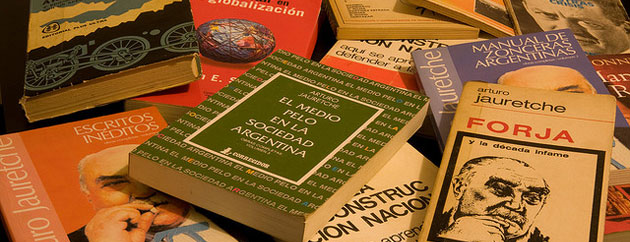
Argentina impound foreign-printed books as way of improving domestic situation
02 October, 2011Many of Argentina’s publishers are currently feeling aggrieved at the Government’s decision to impose a strict regulation for books to be printed within the country, a decision which has led to a huge stock-piling of books at customs where all foreign-printed books have been impounded.
Argentina’s Government is determined to improve domestic industrial capacity and has already implemented strong-arm tactics aimed at improving the automotive industry, chemicals, pharmaceuticals and textile sectors using a new system of matching 1 dollar export to 1 dollar import. President Cristina Fernandez explained the ideology of this recently:
“The world is going in one direction and at times it seems like we’re going to the opposite, but this is the necessary path to recover a country that already knew how to do things.”
In order for publishers to liberate their book from customs they are being forced to meet representatives of Commerce Secretary Guillermo Moreno to discuss their plans for shifting production to domestic printing houses. Clarin, one of Argentina’s leading newspapers, stated there are currently 1.6 million impounded books. Not too surprising considering the Argentines are avid readers, consuming 76 million books last year alone.
Some of the problems regarding this policy for publishers include the increased cost of using domestic printing houses as well as an alleged lack of quality and inability to deal with large volumes of printing.
In one of few comments that have been made from the publishers is this statement from the Publishing Chamber:
“The editorial sector is surprised by the prolonged intervention that affects the basic right of the citizens to have access to the book as a vehicle of education and culture.”
Follow Sounds and Colours: Facebook / Twitter / Instagram / Mixcloud / Soundcloud / Bandcamp
Subscribe to the Sounds and Colours Newsletter for regular updates, news and competitions bringing the best of Latin American culture direct to your Inbox.

